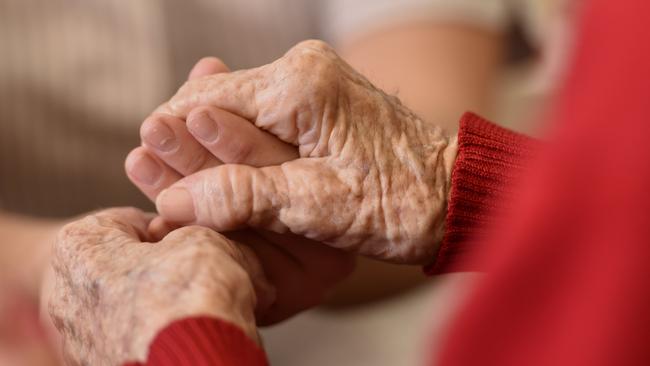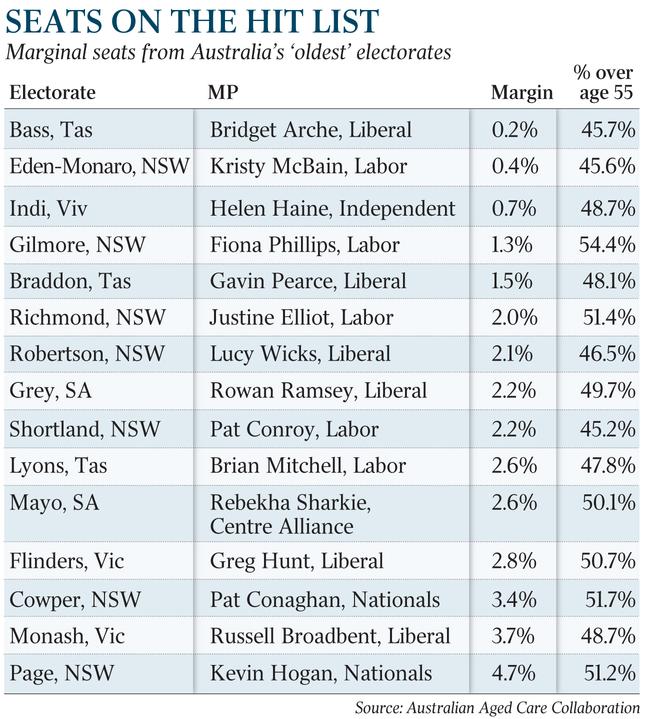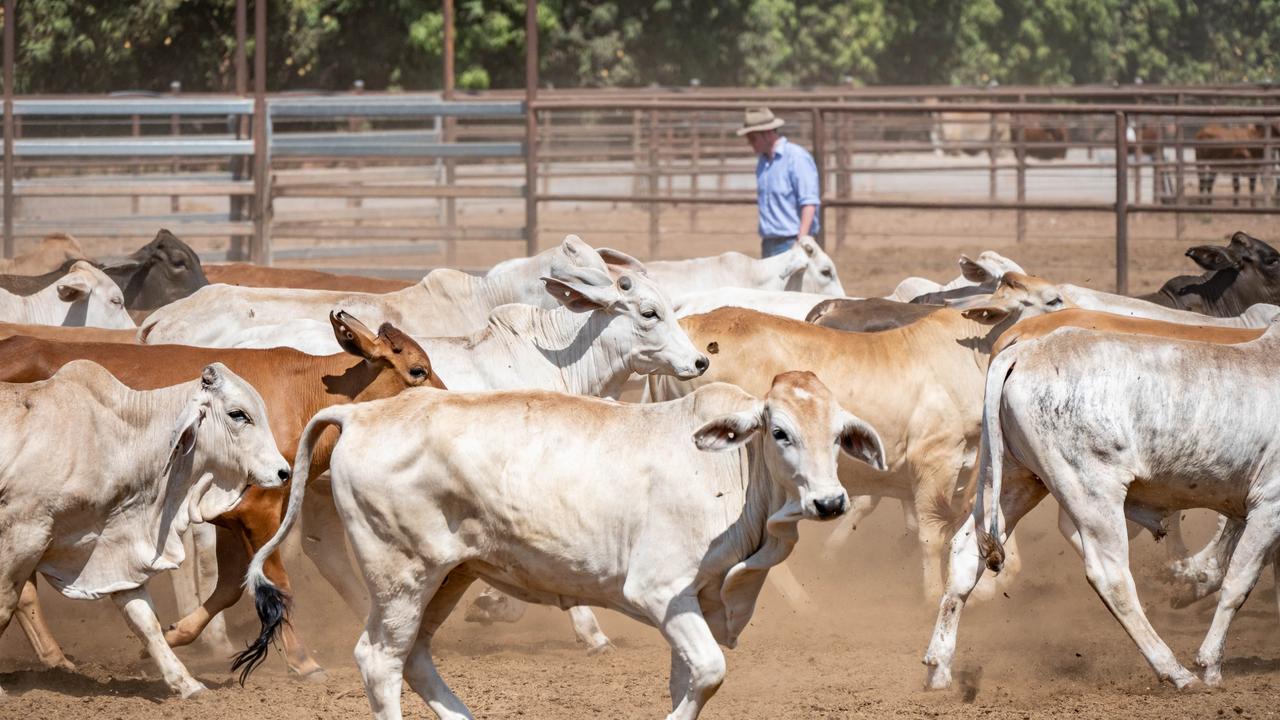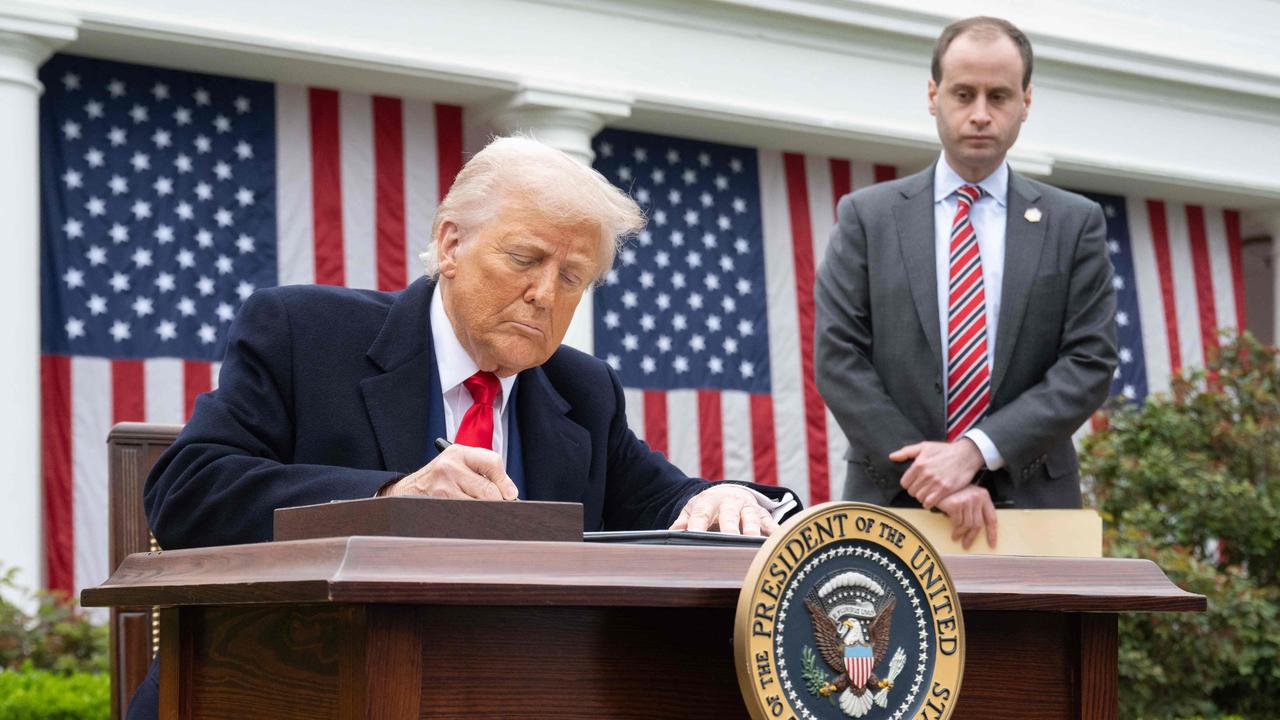MPs targeted in campaign to lift aged-care funds
Aged-care providers will launch a campaign across marginal seats warning Australia needs to spend an extra $20bn a year to bring the sector up to world standards.

A coalition of church-backed, charity and private aged-care providers covering 1000 organisations will launch a political campaign across 15 marginal federal electorates warning Australia will need to spend an extra $20bn a year to bring the sector in line with world standards.
With the royal commission into the aged-care crisis due to report at the end of the next week, the powerful new lobby is poised to name and shame MPs to force a radical overhaul of the sector’s resourcing, regulation and workforce training.
The Australian understands that the spending review committee of cabinet met last week to discuss the Morrison government’s response to what is expected to be damning final findings and recommendations from the royal commission into the abuse and neglect of elderly Australians in residential care.
But threatening to follow the heated school-funding campaign undertaken by the Catholic and independent school sectors against the Turnbull government in 2018, the newly formed pact will release a report on Monday claiming a shortfall of 100,000 home-care packages needs to be urgently addressed.
It claims 88,000 new residential places would also be needed by 2030, at a cost of $55bn to address a funding crisis that plunged 64 per cent of all aged-care homes into the red last year. The alliance will begin campaigning in 30 seats, which it has identified contain the largest proportion of over-55s, 15 of which are marginal, representing a block of 815,000 voters.
The decision by the church and charity-run organisations to unite under one banner with private operators for the first time follows interim royal commission findings accusing the nation of being gripped by an “ageist mindset” that had led to dramatic underfunding of age care compared to the OECD average while overseeing “shocking” and widespread abuse and neglect of aged care residents.
While the neglect has occurred in the centres operated by organisations signed up to the pact, which boasts a 70 per cent coverage of the sector servicing almost one million clients, it argues this was a direct result of the funding crisis facing the sector.
Calling itself the Australian Aged Care Collaboration, the alliance claimed that Australia devoted funding of only 1.2 per cent of GDP to aged care when the average for comparable countries was running at 2.5 per cent of GDP. Governments were responsible for spending $21bn a year on aged care, 63 per cent of which went into residential centres.
The group is spearheaded by the main church-backed providers — Catholic Health Care, Anglicare, Baptist Health Care, UnitingCare Australia — as well as charity and private operators covered by Aged and Community Services Australia (ACSA) and Leading Aged Services Australia.

The report to be released by the alliance cites statistical evidence provided to the royal commission as testimony of a sector in crisis.
“Australia’s aged-care system is in urgent need of transformation, with 16,000 vulnerable Australians dying in 2017-18 while waiting for a government-subsidised support package in their own home,” its report says.
“An additional 100,000 people are waiting for home support at their approved level — with those in need of the highest-level packages typically waiting at least 12 months.
“Separately, a further 88,000 places will be required in communal residential aged care over the next 10 years, at a cost of $55bn.”
ACSA chief executive Pat Sparrow said the government could not ignore the findings of the royal commission and needed to engage fundamental reform to the sector after 20 years of failures by successive governments.
Ms Sparrow said the sector took responsibility for its own failings and said COVID-19 had “highlighted in a shocking way” the issues that had needed to be addressed. “After 20 years of missed opportunities, Australia cannot let the release of the final royal commission report later this month pass without taking real action,” she said. “Australia currently spends about half of what other comparable countries do on looking after their most vulnerable older citizens.”
Leading Aged Service Australia chief executive Sean Rooney said the residential aged-care sector was in crisis, with 64 per cent of homes operating at a loss in 2020. This was almost double the medium-term average of 33 per cent, he said. “Australia should no longer accept the drip-feed of piecemeal rescue packages and ad hoc changes,” he said.
They claimed the campaign was non-partisan with the seats targeted held almost equally by Labor and Coalition parties. They include Health Minister Greg Hunt’s seat of Flinders and former Labor minister for aged care Justine Elliot’s seat of Richmond.





To join the conversation, please log in. Don't have an account? Register
Join the conversation, you are commenting as Logout